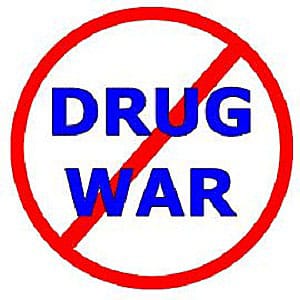Australia’s sitting foreign minister, Bob Carr, and a former head of the federal police, Mick Palmer, are among a group of prominent Australians behind a new campaign to end the war on drugs Down Under.
The campaign was launched Tuesday with a report from Australia 21, which straightforwardly declares: “The war on drugs has failed … The prohibition of illicit drugs is killing and criminalizing our children and we are letting it happen.”
The campaign is being headed by former New South Wales director of public prosecutions Nicholas Cowdery. Other big names behind the campaign include former West Australia premier Geoff Gallop, former Defense Department head Paul Barratt, former Liberal health ministers Michael Wooldridge and Peter Baume, and drug addiction expert Dr. Alex Wodak.
Carr, who joined the campaign before he was named foreign minister, said that while he would support government drug policy while part of the government, he still supported drug law reform. In his contribution to the report, Carr focused on marijuana law enforcement.
“An issue that worried me while I was in New South Wales politics was the police hitting railway stations with sniffer dogs,” then-Senator Carr wrote. “It was marijuana that was the focus.” But pot-smoking was a victimless crime, Carr wrote, and he would have preferred that police “to things like make public transport safe and clean up [the high crime area] Cabramatta.
The report, mainly authored by social scientists working with Australia 21, calls for a fundamental rethinking of approaches to drug use and “an end to the tough-on-drugs approach.”
“The key message is that we have 40years of experience of a law-and-order approach to drugs and it has failed,” said Dr. Wooldridge, who had tried to get a heroin maintenance program going in the Australian Capital Territory, but was blocked by then-prime minister and drug war hardliner John Howard.
Drug prohibition creates health and social problems, as well as a”proliferation of crime … and an increase in the corruption of law enforcement,” wrote Cowdery. Instead, he argued, drugs should be legalized and regulated.
“A first step towards such a regime could be decriminalization, similar to the approach adopted 10 years ago in Portugal, or an adaptation of that approach,” Cowdery wrote. “The key as I see it, is to try to reduce substantially the profit potentially able to be made by criminal activity in the drug trade and the only way to do that, as I see it, ultimately is to legalize, regulate, control and tax all drugs.”
Politicians who know better are afraid to talk about drug reform, Cowdery noted. “That’s why I think we need to have the discussion in the community and why we need as a consequence of the discussion to demonstrate to the politicians that there is a significant proportion of people that want something better.”
Article From StoptheDrugWar.org — Creative Commons Licensing





